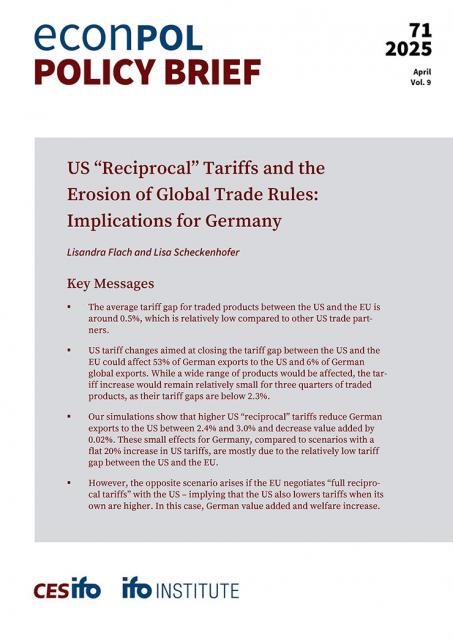News Archive

Vaccines: How to Use Market-Based Incentives to Ramp Up Production
|
EconPol Opinion
| News
Economic incentives to accelerate vaccine production would be much more productive than the empty threat of suing AstraZeneca - the additional cost for boosting vaccine supply for Europe might run into a couple of billions of euros, but this would be a lot less than the cost of prolonged disruption to the economy and society, let alone the lives lost. Clemens Fuest and Daniel Gros examine the EU's mistakes.

The Global Economic Impact of Politicians: Evidence from an International Survey RCT
|
Working Paper
| News
- Read more about The Global Economic Impact of Politicians: Evidence from an International Survey RCT
A large-scale RCT survey of 843 experts in 107 countries examined how the US president influences economic expectations of international experts, including GDP growth, unemployment, inflation and trade in their country. The results show that the election of Joe Biden increased growth expectations of international experts by 0.98 percentage points for the year 2021, that treatment effects materialize only in the short-run and experts’ uncertainty increased after the election.

(Non-)Keynesian Effects of Fiscal Austerity: New Evidence from a Large Sample
|
Working Paper
| News
Using a large sample of 174 countries between 1970 and 2018, authors empirically assess whether a usually expected negative response of private consumption and private investment to a fiscal consolidation is reversed.

International Transmission of Interest Rates: The Role of International Reserves and Sovereign Debt
|
Working Paper
| News
In this study of the determinants of international transmission of interest rates with a special emphasis on the role of international reserves and government debt, authors confirm that the trilemma still holds. They find significant spillovers from the U.S.

The Advantages of the Division of Labour Also Apply to Economic Policy: The Green New Deal
|
EconPol Opinion
| News
Even in times of the corona pandemic, environmental and climate protection are among the dominant topics in the economic policy debate:this is justified, as global warming is one of the greatest challenges of our time. Tackling it requires a transformation of the economy by reducing CO2 emissions and adapting to the climate change that has already occurred or will occur despite all efforts. European policymakers have set out to drive this transformation under the banner of the Green New Deal, its objectives shared by a large majority of the population.
